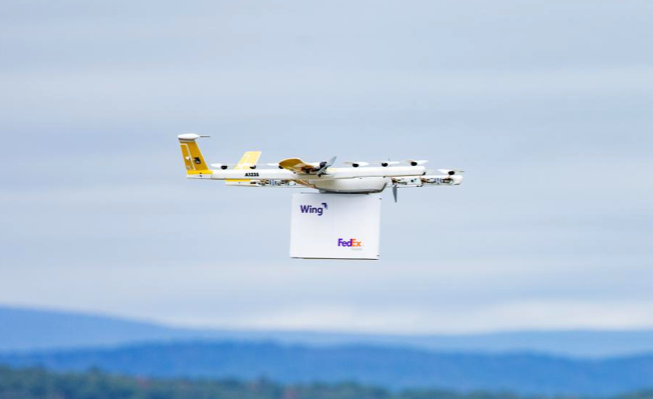Superior Essex Agrees to Acquire Remaining Ownership Stake in Essex Furukawa Global Joint Venture from Furukawa Electric
ATLANTA — Superior Essex, a global leader in the magnet wire and communic...
The dominance of Google in our daily lives has now taken to the air, at least for residents of Christianburg, Va., which has become the first city in the country testing drone delivery.
Wing, an aircraft operated by the Google parent company, hovers, flies, drops down, and successfully delivers FedEx packages in the small town. It was a fulfillment of the promise made by many delivery companies in recent years to expedite the delivery process. It also was only made possible after the Federal Aviation Administration compromised on several U.S. airspace rules and clearances.
“There’s been a lot of talk about drones. Today, we’re actually doing it. We’re actually delivering an e-commerce order to someone’s doorstep,” said Richard W. Smith, a FedEx executive, told The Washington Post. “This is not vaporware. This is real. It’s here today.”
The clearance for Wing is still in a trial basis according to the FAA. Many of its rules and regulations have been written for airplanes and helicopters; as such a compromise in definitions for drones has yet to be fully reached due to the size at which drones have been developed at.
The potential increase of drones in airspace – including air taxi services that are advancing – have been met by stiff resistance from the Air Line Pilots Association International, among other groups. The group is fighting to repeal the exemption made by the FAA, saying that projects like Wing can ‘erode the safety levels’ that current airspace enjoys.
On the flipside of the opposition is Tom McMahon, a spokesman for the Association for Unmanned Vehicle Systems International. He said that progress and innovation are being trampled by expiring thought processes.
“It’s like anything else we’ve seen with technology,” he told the WaPo. “We don’t appreciate what it provides to us until it starts performing the service.”
The drones are made of a foam similar to that of a bicycle helmet protective layer and are operated by 12 helicopter-like rotors with two wing-mounted propellers. They are operated out of a ‘nest’ in a partnership with nearby Virginia Tech.
Wing pilots can monitor up to five of the autonomous aircrafts to ensure safe delivery of packages. The drones can carry a three-pound package within a nearly four-mile radius of its nest and travel with speeds up to 65 mph.
Currently, Wing does not charge for its deliveries and plans to expand its business by partnering with other major corporations to increase speed and convenience to customers. It can also help smaller businesses by offering a cheaper alternative to shipping via ground-based delivery trucks.
To read more about the Wing project in Christianburg, click here.
